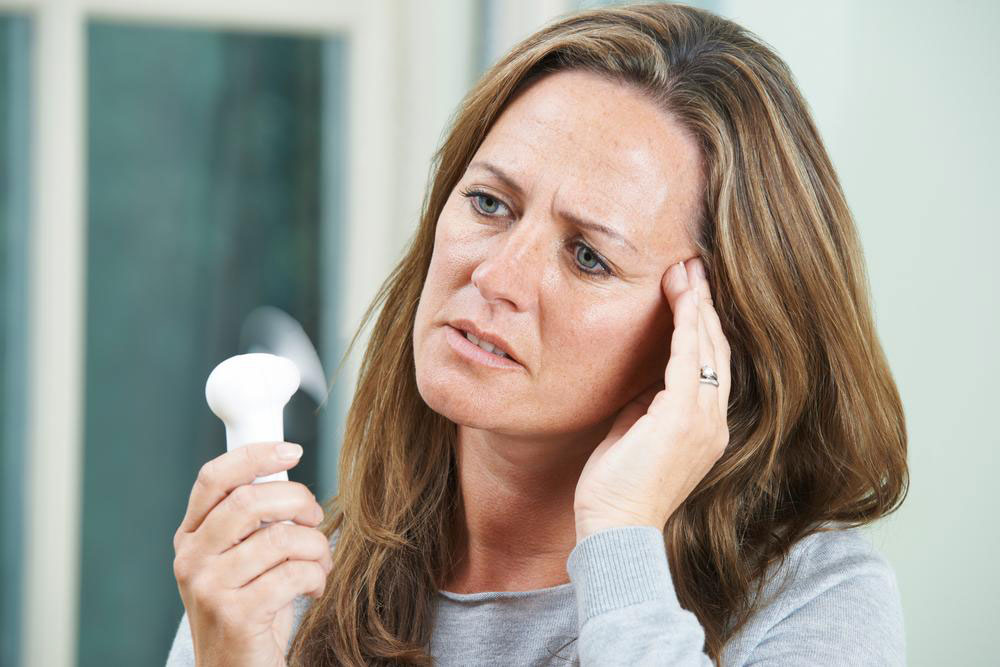Comprehensive Guide to Menopause: Understanding This Natural Life Transition for Women
This comprehensive guide explains menopause as a natural biological transition in women’s lives. It covers the biological processes, symptoms, influencing factors, and ways to manage menopause effectively. Women can gain insights into how hormonal changes affect their body and learn practical strategies for a smoother transition, promoting overall well-being during this significant life stage.

Menopause represents a significant milestone in a woman's lifecycle, marking the conclusion of her reproductive phase. It is a natural biological process that occurs as part of aging, typically between the ages of 49 and 52, although it can vary depending on individual health and circumstances. Understanding menopause is crucial for women to manage symptoms effectively and to distingush it from other health issues. This guide provides an in-depth exploration of what menopause entails, its causes, symptoms, and ways to cope with this transition.
From the moment of birth, every girl is born with a finite number of ovarian eggs—approximately one to two million. These eggs are stored within the ovaries and remain dormant until puberty, when hormonal changes activate their development. During puberty, the female body begins to produce increased levels of estrogen and progesterone, hormones responsible for regulating the menstrual cycle and supporting reproductive health. These hormonal shifts trigger the maturation of ovarian eggs, leading to regular ovulation and menstruation, which are key features of reproductive maturity.
The menstrual cycle is a complex process involving the thickening and shedding of the uterine lining in preparation for potential pregnancy. Each month, a mature egg is released during ovulation. If fertilization by sperm does not occur, the uterine lining is shed through menstruation, resulting in a period. This cycle continues regularly for most women until reproductive decline begins, culminating in menopause.
Menopause is officially diagnosed after a woman has gone without a menstrual period for 12 consecutive months. This cessation indicates that the ovaries have significantly reduced their production of estrogen and progesterone, leading to the end of ovulation. On average, women reach menopause between the ages of 49 and 52, but the timing can vary considerably based on genetics, lifestyle, health status, and exposure to certain factors. For example, women who smoke tend to experience earlier menopause, while factors such as chemotherapy, hysterectomy, or ovarian removal can hasten this process.
The transition into menopause is often accompanied by a range of symptoms, although the experience varies widely among women. Common signs include hot flashes—sudden bouts of warmth that spread across the body and may cause sweating and discomfort. Many women also experience irregular cycles leading up to menopause, accompanied by mood swings, sleep disturbances, and vaginal dryness. Additionally, some women report decreased libido, weight gain, and joint pains during this period. These symptoms are largely due to fluctuating hormone levels, especially declining estrogen, which plays a critical role in various bodily systems.
Understanding the factors that influence menopause is essential. Lifestyle choices such as smoking, diet, physical activity, and stress levels can impact its onset and severity. Women with a history of certain medical treatments, like chemotherapy or radiation, may experience early menopause. Moreover, genetic predisposition plays a role, as menopause tends to occur around the same age as in close female relatives.
While menopause is a natural phase, managing its symptoms is important for maintaining quality of life. Several approaches can help, including hormone replacement therapy (HRT), which balances hormonal levels, addressing hot flashes, night sweats, and mood swings. Non-hormonal options, such as antidepressants or herbal supplements, may also provide relief. Lifestyle modifications—like regular exercise, a healthy diet rich in calcium and vitamin D, adequate sleep, and stress management—are vital in mitigating symptoms and reducing associated health risks, such as osteoporosis and cardiovascular disease.
Psychological support is equally important, as the emotional and mental health aspects of menopause can be challenging. Many women experience feelings of anxiety or depression during this transition. Counseling, support groups, and open communication with healthcare providers can facilitate a smoother adjustment. Furthermore, routine health screenings become essential as the risk for various conditions increases with age, including bone density loss and heart disease.
In conclusion, menopause is a significant and natural chapter in women's lives. While it involves hormonal adjustments that can bring about uncomfortable symptoms, understanding the process and available interventions can help women navigate this transition more comfortably. Emphasizing healthy lifestyle choices, seeking appropriate medical advice, and fostering psychological well-being are key strategies in managing menopause effectively. With proper support and knowledge, women can approach menopause with confidence and resilience, embracing this new stage of life.





